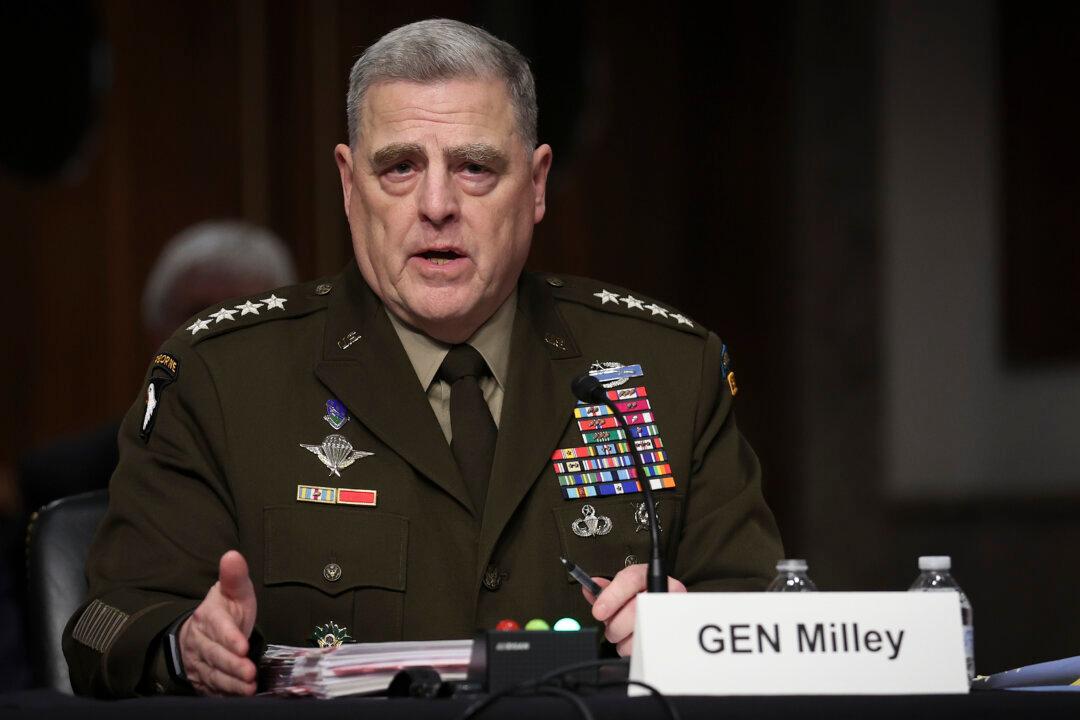Senior Pentagon officials have denied involvement in the Biden administration’s reported decision to share intelligence with the Chinese Communist Party during the lead-up to the Russian invasion of Ukraine.
Defense Secretary Lloyd Austin and Chairman of the Joint Chiefs of Staff Gen. Mark Milley both said that they did not advise such action or know about it.




